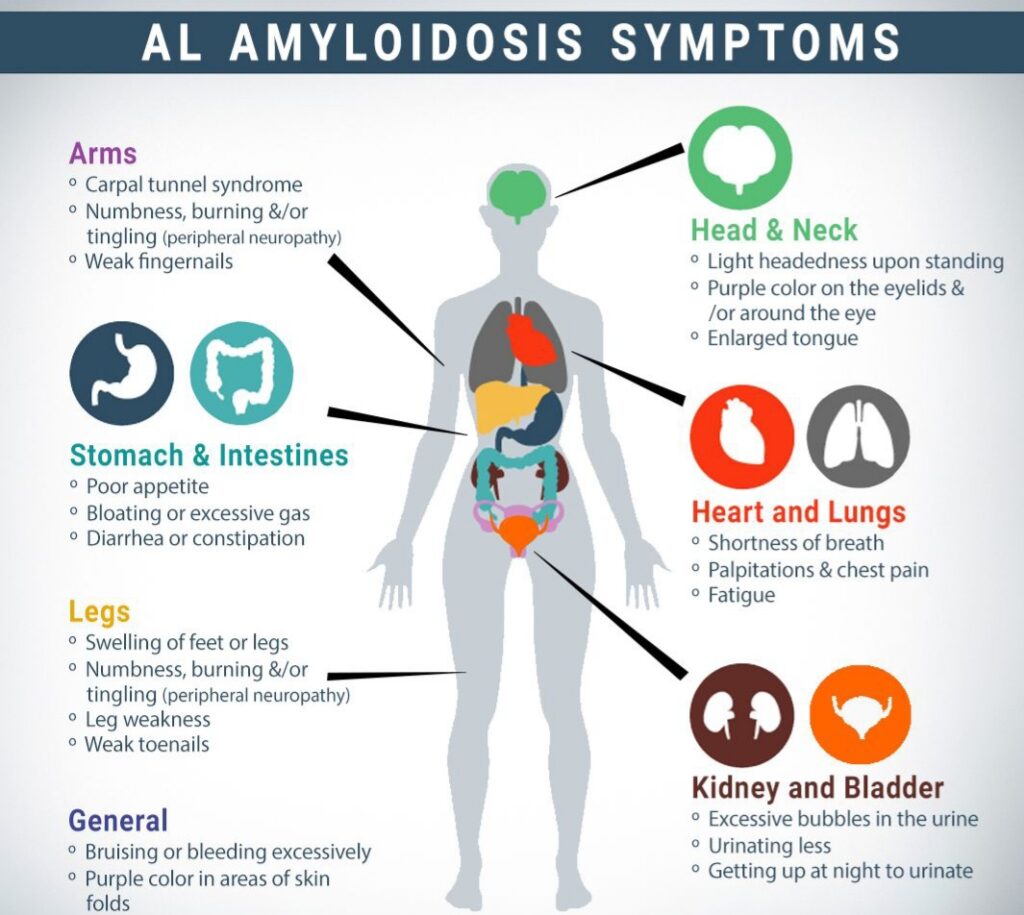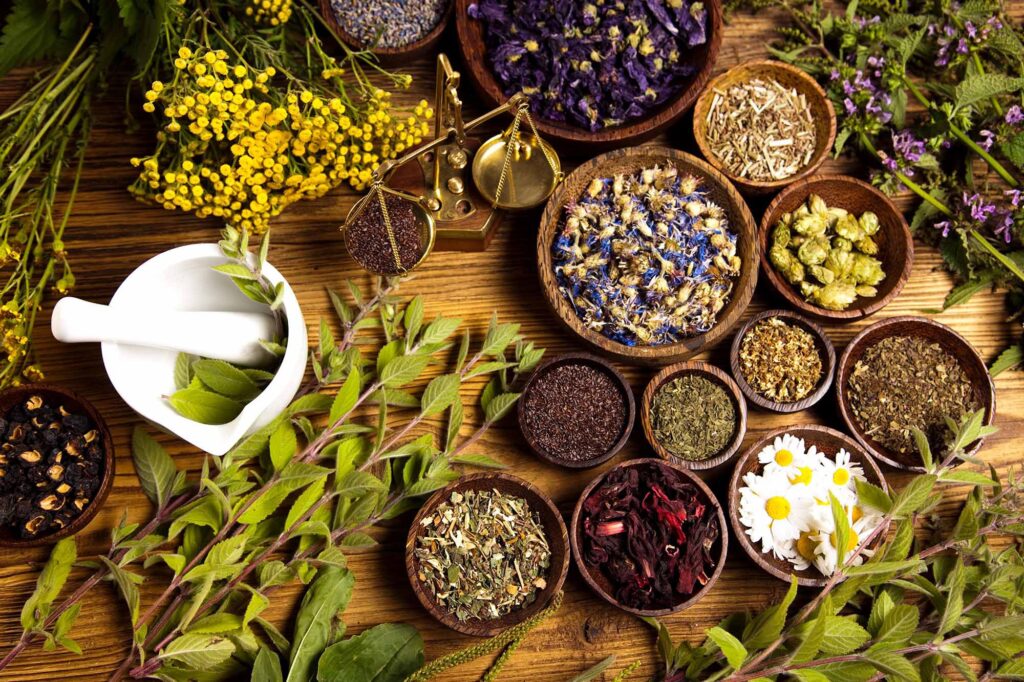Amyloidosis is a very rare condition that occurs when a protein amyloid builds up in the body organs. The protein amyloid can be built in the organs such as heart, kidneys, brain and nerves causing problems in their functioning.
Modern treatment of amyloidosis includes chemotherapy similar to that used in cancer treatment. In some cases, organ or stem cell transplants are also recommended but Ayurvedic treatment includes the use of herbs and herbal remedies that work by eliminating the root cause.

Amyloidosis according to Ayurveda:
According to Ayurveda, the cause of amyloidosis is the vitiation of Kapha dosha and srotas- avrodh (blockage of channels) due to the deposition of Ama (endotoxins) in the body channels.
In Ayurveda, there is a mention of herbs that have bhedniya (scraping) action. These herbs are helpful in amyloidosis as these open up the channels by scraping the stubborn amyloid protein.
Other herbs having aampachak (digestion of toxins), deepniya (improving metabolic fire and improving metabolism of proteins) are quite beneficial.

Herbs for Amyloidosis are:
- Curcumin (Curcuma longa): Curcumin, commonly known as turmeric is wonderful spice used in every Indian household.
- It possesses anti-inflammatory, analgesic, antioxidant properties which reduce pain, inflammation in the muscles and gives nourishment as well as strength.
- Curcumin acts wonderfully in preserving overall health.
- This versatile spice helps in detoxifying the liver thus reduces and clearing the endotoxins.
- Ashwagandha (Withania somnifera): The roots of Ashwagandha are widely used in Ayurvedic practice for the treatment of wide variety of health disorders.
- This inexpensive herb acts as a Rasayana (rejuvenator).
- It is believed to possess antioxidant, free – radical scavenging activity and an ability to support a healthy immune system.
- This herb has been used successfully in Ayurvedic medicine since centuries.
- Katuki (Picrorrhiza kurroa): Katuki is a bitter herb having antioxidant, hepatoprotective and detoxification properties.
- It helps in clearing ama (endotoxins) from the body due to its purgative and hepatoprotective properties.
- Katuki is known to be a cooling herb possessing the ability to pacify Pitta and Kapha doshas, without disturbing the digestive fire.
- Guggul (Commiphora mukul): Guggul is an oleogum resin exuding from the fissures and cracks in the bark or from the incisions from several different plant species such as Commiphora mukul, C. molmol etc.
- The gum resin has been used thousands of years in the treatment of inflammatory conditions, lipid metabolism etc. thus acting as a potential anti-amyloidosis agent.
- Aloe Vera (Aloe barbadensis): Aloe vera is an excellent one to improve the health as it enhances the functioning of all the organs.
- This herb is a rich source of anti-oxidants and helps in the removal of toxins thus helps in flushing out proteins.
- It helps in controlling symptoms such as weakness, constipation, fatigue associated with amyloidosis.
- Suranjan (Colchicum automnale): This herb is very helpful in amyloidosis as it has role in protein metabolism.
- In modern medicine, suranjan is widely used in decreasing uric acid production.
- It reduces pain and inflammation associated with amyloidosis naturally.
- Triphala: Triphala is a simple powder formulation consisting of three fruits: Amla (Emblica officinalis), Vibhitaki (Terminalia bellirica) and Haritaki (Terminalia chebula).
- Triphala is one of the most promising formulations which has been used since thousands of years.
- The synergistic ingredients have a unique potential to detoxify and rejuvenate the body.
- It is helpful in getting rid of endotoxins and accumulated protein by cleansing the colon and acts as a blood cleanser as well.
Thus, these wonderful herbs work in a systematic manner and provides relief in amyloidosis by eliminating the root cause i.e., flushing out accumulated toxins and clearing the channels of the body. These herbs are useful in the purification of blood and improving protein metabolism as well.
Disclaimer:-
This article is not a substitute to the standard Medical Diagnosis or personalized Ayurvedic Treatment! It is intended only for Information!
For experts consultation, please write us at care@blessayurveda.com.
2,779 total views, 3 views today